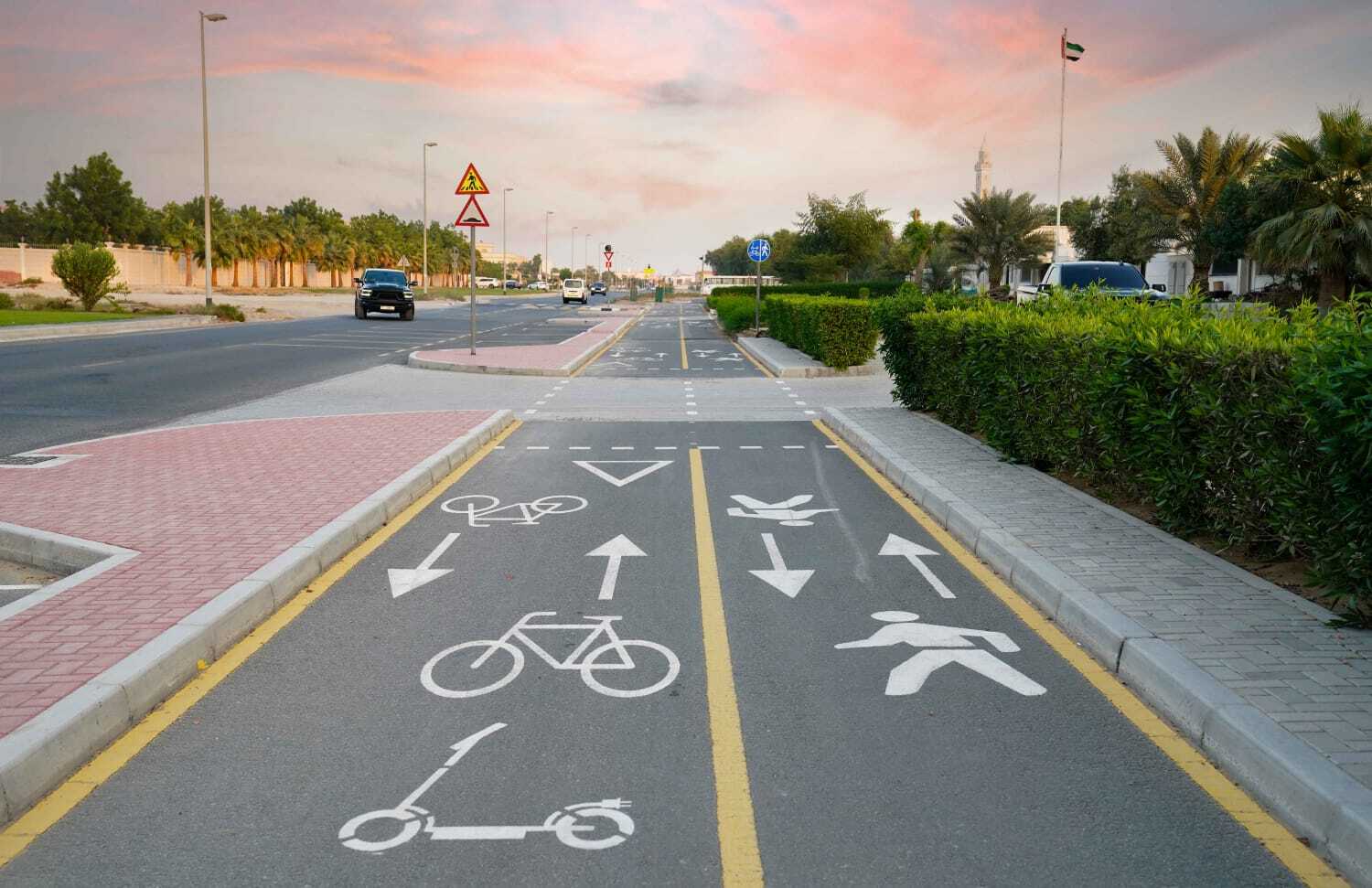In response to H.H. Sheikh Hamdan bin Mohammed bin Rashid Al Maktoum, Crown Prince of Dubai and Chairman of the Dubai Executive Council, Dubai’s Roads and Transport Authority (RTA) has awarded a contract for the development of cycling tracks in Al Khawaneej and Mushrif. The initiative intends to create sufficient possibilities for people to cycle as part of the Dubai Urban Plan 2040. The new tracks are 7 kilometers long and connect to existing tracks that are 32 kilometers long in the two districts, bringing the overall length of cycling tracks in the two districts to 39 kilometers.
“Undertaking this project is part of a master plan for jogging and cycling tracks all over Dubai. The aim is to encourage residents and visitors to practice sports and recreational activities, which would enhance the wellbeing of people in the emirate. The project underlines RTA’s commitment to enhancing the link between the existing cycling tracks at residential areas as well as the points of attraction in the neighborhoud,” said Mattar Mohammed Al Tayer, Director-General, Chairman of the Board of Executive Directors of RTA.
Two Cycling Tracks
“The first track runs from the Quranic Park on Sheikh Zayed bin Hamdan Al Nahyan Street up to the intersection with Al Khawaneej Street. It crosses the street through the combined pedestrian and cycling bridge on Al Khawaneej Street to link with the existing cycling track in Al Khawaneej.
“The second cycling lane starts from Mushrif Park near the Crocodile Park, extends up to the intersection with Sheikh Zayed bin Hamdan Al Nahyan Street, and then heads northward up to the intersection with Al Khawaneej Street. It crosses the street through the pedestrian and cycling bridge on Sheikh Zayed bin Hamdan Al Nahyan Street to connect with the cycling track in Al Khawaneej. Accordingly, the total length of the two new cycling lanes and the existing lanes in Al Khawaneej and Mushrif rises to approximately 39 kilometres,” explained Al Tayer.
“The cycling track in Al Khawaneej and Mushrif is part of a master plan to develop cycling tracks and connect key districts of the city. The plan, which extends to 2026, includes the construction of additional cycling tracks extending 278 km, bringing the total length of cycling tracks to 819 km. The plan also seeks to link the coastal areas such as Jumeirah, Al Sufouh and the Marina with the external tracks at Al Qudra, Seih Al Salam and Nad Al Sheba along Al Barsha, Dubai Hills and Nad Al Sheba,” added Al Tayer.
Top Standards
“The design, construction and setting of speed limits for cycling tracks are in line with the top international standards and technical directories. It is also customised to the nature of the locality and the classification of the tracks. These tracks encourage residents and visitors to practice cycling such that it would develop into an alternative and sustainable mobility means that serves the first and last-mile strategy,” concluded Al Tayer.
It is noteworthy that the dedicated cycling tracks constructed up to the first quarter of 2022 reached 542 km. RTA intends to push the total length of cycling tracks further to 819 km by 2026 to link Dubai’s hotspots with various public transit means.
Cycling Speed
RTA has set a speed limit of 30 km/h at cycling tracks dedicated to amateurs and tracks shared with vehicles on safe roads. It fixed a speed limit of 20 km/h on dedicated or shared tracks with pedestrians within urban areas. However, no specific speed limits are set for cycling tracks for training purposes. The overall objective of introducing speed limits for cycling tracks is to ensure the safety of both pedestrians and cyclists.




